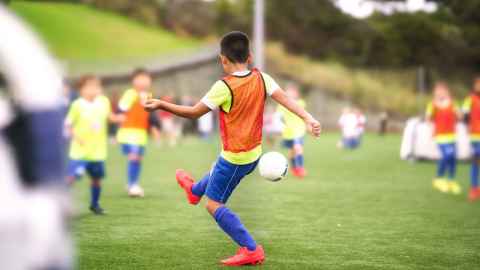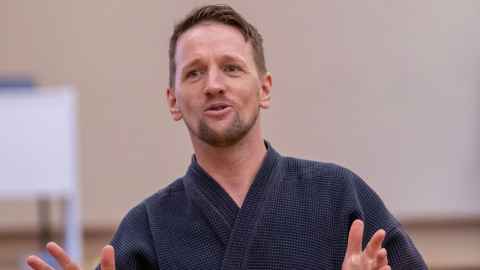Volunteer sports coaches are throwing in the towel
2 September 2025
Amateur sports clubs across the country are experiencing the knock-on effects of a sharp decline in volunteer coaches.

Every Saturday morning, the country’s sports fields are jam-packed with enthusiastic young players, but there are fewer and fewer people stepping forward to coach them.
Dr Blake Bennett, a senior lecturer in the Faculty of Arts and Education at the University of Auckland, has conducted research with volunteer sports clubs and coaches across New Zealand.
He says according to the New Zealand Amateur Sport Association, the average number of volunteers per club has dropped more than 40 percent since Covid, falling from 31 to just 18 over the past five years; and coaching roles in particular are increasingly vacant or overextended.
“I found the decline has three main causes – the increased burden of ‘compliance’ paperwork clubs have to fill out; uncertainly around rules, especially related to child safety; and the sheer amount of work that often lands on just one or two people.”
Bennett, a longtime kendo (modern Japanese martial art) coach himself, says volunteers aren’t stepping back because they lack information.
“They’re leaving because the experience of volunteering has become complex, isolating, and hard to sustain. And these pressures aren’t just abstract, they affect personal well-being, relationships, and even the long-term sustainability of clubs.”
Health and safety responsibilities are a particularly visible source of strain, he found.
“For example, only 33 percent of volunteer coaches found their sport’s safeguarding policies helpful,” says Bennett. “Some volunteers improvised defensive behaviours, such as entirely avoiding physical contact with players or hesitating to coach across gender lines, driven by uncertainty and fear of consequences.”

Since the Children’s Act of 2014, there has been increased pressure for clubs to introduce child protection policies, to safety check all workers, to report all concerns, and to provide training for staff and volunteers on child protection.
And these things are all highly important and necessary, says Bennett. However, the burden of compliance rests very heavily on coaches, who are already overloaded with other duties.
"These challenges are compounded by other administrative requirements, like those under the Incorporated Societies Act, which requires clubs to review their constitutions, a task often falling to the same handful of already-stretched volunteers, for example."
He says a report from the Amateur Sport Association, for example, found that by 2024, only a third of clubs knew what the re-registration process required.
Despite these pressures however, some volunteers soldier on for years out of loyalty, habit, or a deep sense of responsibility.
“Even when the joy is gone, many volunteers keep showing up because they fear that if they step back, everything they’ve contributed will collapse,” Bennett says.
He believes volunteer well-being is a shared responsibility that involves both policy makers at the top levels, and club members more generally.
“We need club systems designed to ease the burden, expectations that don’t overreach, and cultures where kindness isn’t an afterthought,” he says.
As participation in sport and recreation across New Zealand remains high, recruiting more volunteers and supporting those who stay will be critical, he believes, if we want to keep offering our young people these opportunities.
“But without action, the community sports sector risks not only losing good people, but having the well-being of those who remain sharply disintegrate to the detriment of everyone.”
Media contact
Julianne Evans | Media adviser
M: 027 562 5868
E: julianne.evans@auckland.ac.nz